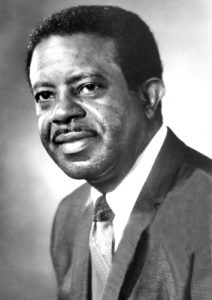
The Bistro
Please step in to our grandest dining room for your Lace on Race Café dining experience. We are… View more
Black History Month at LoR: Honoring Ralph David Abernathy
-
Discussion
-
Everybody needs friends.
One of the dangers of highlighting discrete individuals is that they are almost almost always considered as stand alone actors in a vacuum; there are no advisors, counselors, colleagues–there are no friends.
When we talk about leaders in this way, we fail to see the community, the village around them. We fail to see who shaped them, and how. We fail to acknowledge and appreciate backstory and context. We fail to see their, and their associates, buddies, mentors as fully human.
Last month we talked about Martin Luther King, a giant in the area of civil and human and worker rights. But we rarely consider who he hung with.
In the iconic picture on the balcony of the Lorriane Motel in Memphis, King is not alone. He stands with his friends, each a racial justice leader in their own right: Hosea Williams, Jessie Jackson, and Ralph Abernathy. The grouping of Black activists is important, not only because it chronicles the civil rights struggle, but also because it stands as a reminder to us that change work is best done in the Beloved Community, both in the aggregate and in very personal ways.
King knew this. He surrounded himself with mentors, advisors, colleagues. There were stories of them men who literally changed the trajectory around King’s kitchen, and church halls.
Abernathy, particularly, deserves mention. Often referred to as King’s right hand man (although I quietly disagree with that second-banana designation), Abernathy led both the Montgomery Improvement Association, and later the Southern Christian Leadership Conference.
But he was not a man who carried King’s coat and hat as King agitated. They were more of a one-two punch: King the big picture visionary; Abernathy the bread-and-butter, boots on the ground encourager; exhorting the audiences where he often came after King, to pivot to ‘what that means for tomorrow morning’. This was no small thing.
After King’s death, Abernathy went on to lead SCLC, as well as continued to lead his congregation as pastor of West Hunter Baptist Church.
Queries:
*I am in no way comparing myself to MLK, but as a (painfully) minor semi-public figure, it is often thought that I work alone. I write alone, that’s true; but by no means am I a one woman operation; I have my staff and leadership team and advisors and my sister. It’s a big deal.
But I do understand why people would like to think I am a solo operation. It goes to their idea of individualism, of lone rangers, and, in no small measure, it lets them off the hook. Why do you think I would say that?
*As said before, Abernathy was no second fiddle, but he has gone down in history as such. Why do you think the narrative shook out that way?
*As noted above, King was seen as the visionary, while Abernathy was considered more pedantic and plodding. But that is something of a distortion in that Abernathy was as engaging and inspiring, in his own way, as King. He led direct action, he took what was then considered to be controversial stands. Most of us will not be ‘the main ticket’ in racial justice work; we will be behind the scenes, and we may not get the approbation or notice or attention we think we deserve. Why is confronting this truth important? Is the work worth doing even if nobody ever knows your name?
*I recently read a meme which said, ‘The story of Black people and Black Liberation in America didn’t begin with Emancipation, and it didn’t end with MLK’s death’. But for so many people, that is exactly how they see the civil rights movement. This means that Abernathy’s accomplishments after 1968 are often unmentioned. Consider this; also consider how you see various times in racial justice history. Are they discrete events? Are they part of the same cloth? Does it matter who a person was before they came to prominence, or who they became after their ‘moment’ had passed?
*Abernathy was often compared to King after MLK’s death, sometimes less than favorably. Those doing so often cited the decline of the SCLC under Abernathy’s leadership. What say you? Do you think it was his fault, or did other factors contribute?

Log in to reply.